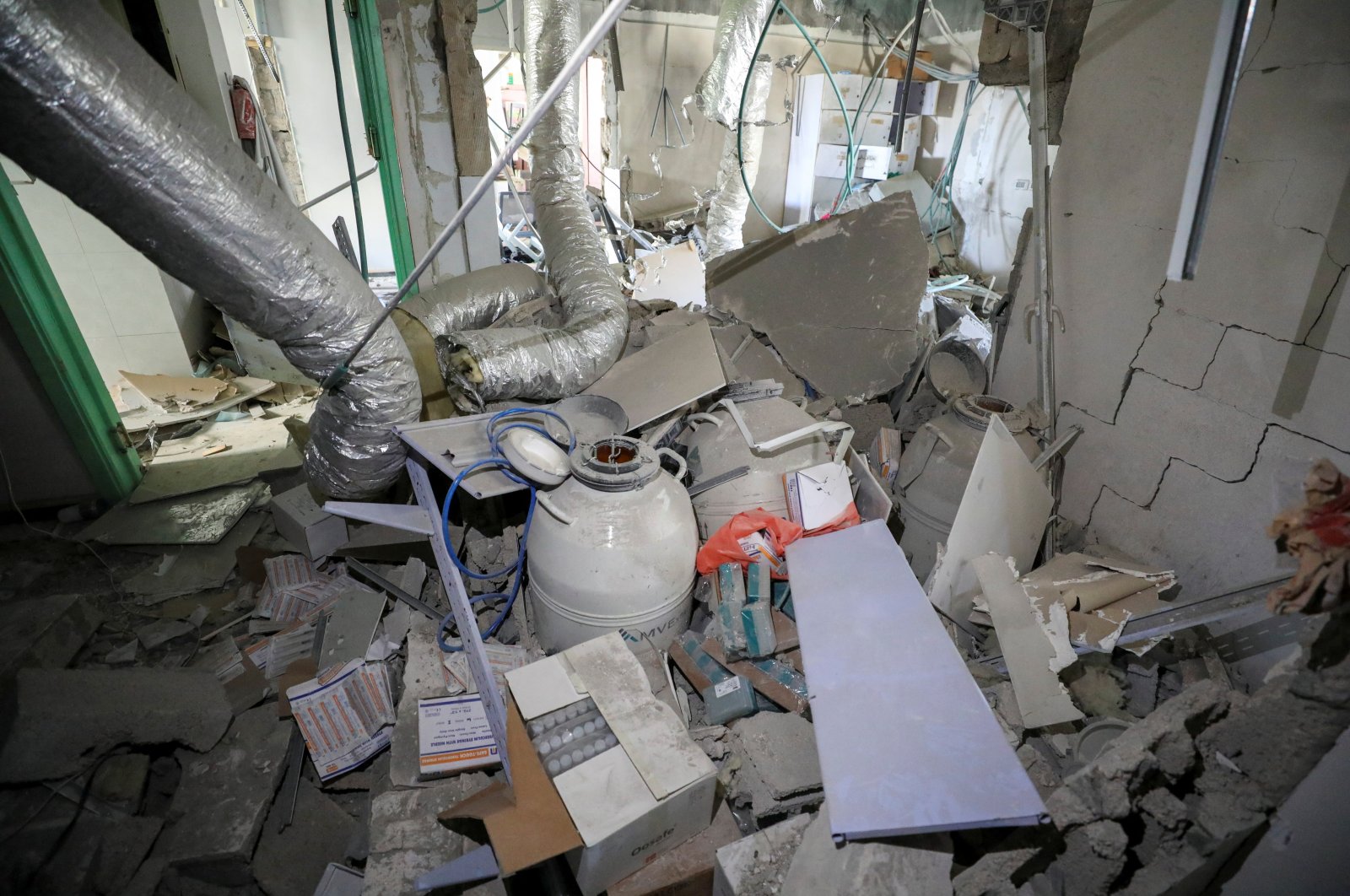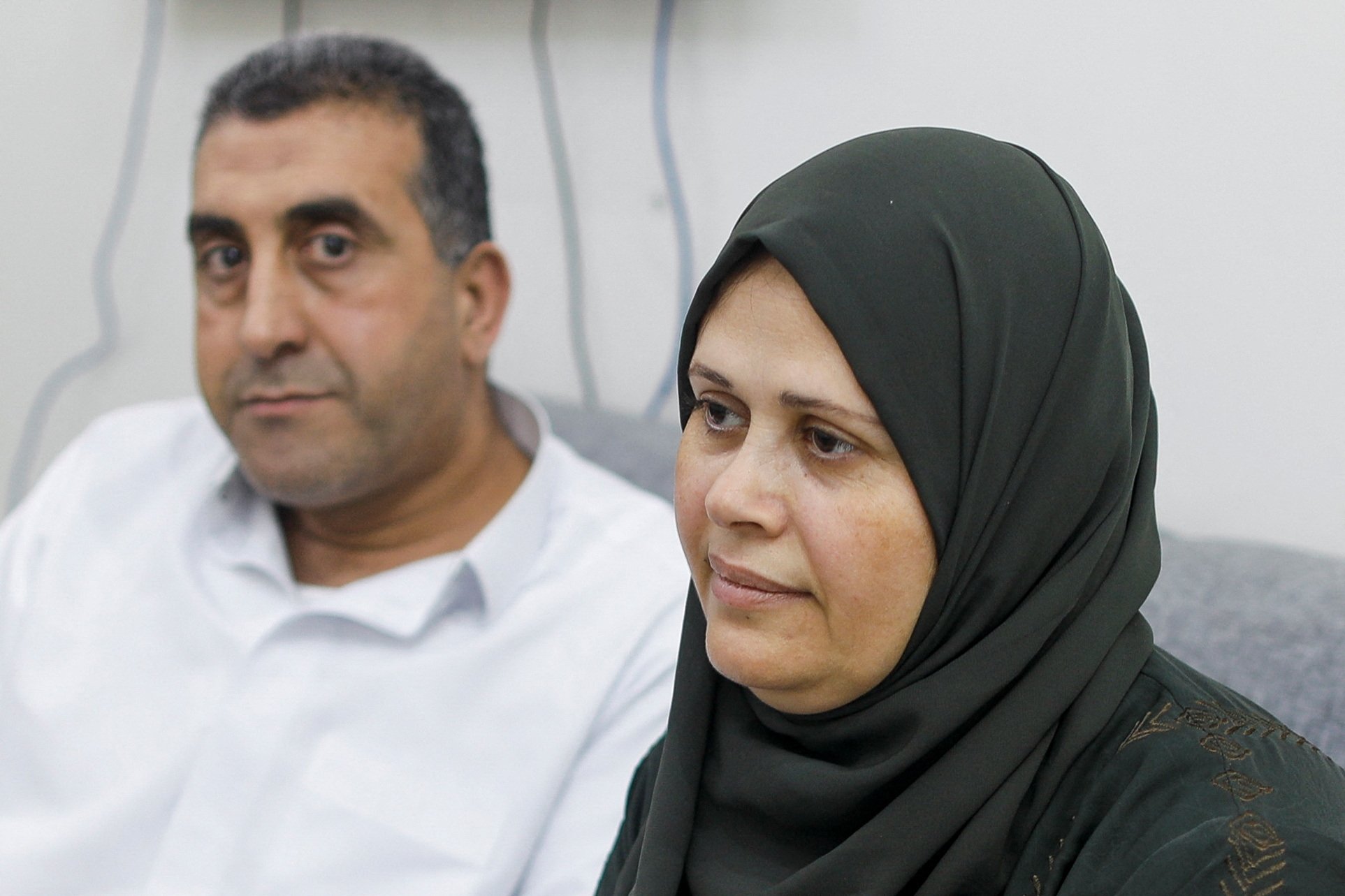Do we need more proof that the Israelis are bent on exterminating the Palestinian people?

"Nitrogen tanks, where embryos were stored, lie at the Al-Basma IVF Centre, Gaza's largest fertility clinic struck by an Israeli shell during the ongoing conflict, Gaza City, Palestine, April 2, 2024. (Reuters Photo)"
In December, an Israeli shell struck Gaza's largest fertility clinic, causing a devastating explosion that shattered the lids of five liquid nitrogen tanks in the embryology unit.
This led to the loss of over 4,000 embryos, along with 1,000 specimens of sperm and unfertilized eggs stored at Gaza City's Al Basma IVF center.
This incident exemplified the profound impact of Israel's six-and-a-half-month assault on the 2.3 million people of Gaza.
The embryos in those tanks represented the final hope for many Palestinian couples struggling with infertility.
"We deeply understand the significance of these 5,000 lives or potential lives, for the parents, both in the future and the past," said Bahaeldeen Ghalayini, 73, the Cambridge-trained obstetrician and gynecologist who established the clinic in 1997.
At least half of the couples, unable to produce sperm or eggs for
viable embryos, will not have another chance to conceive, he said.
"My heart is shattered into a million pieces," he said.
For Seba Jaafarawi, three years of fertility treatment were a psychological roller coaster. The egg retrieval process was painful, hormone injections had substantial side effects, and the sadness of two failed pregnancies seemed unbearable.
Jaafarawi, 32, and her husband could not conceive naturally and turned to in vitro fertilization (IVF), widely available in Gaza.
Large families are common in the enclave, where nearly half the population is under 18 and the fertility rate is high at 3.38 births per woman, according to the Palestinian Bureau of Statistics. Britain's fertility rate is 1.63 births per woman.

"Palestinian woman Najwa Abu Hamada, whose IVF embryos were stored at the Al-Basma IVF Centre, Gaza's largest fertility clinic, which was struck by an Israeli shell during the ongoing conflict, sits next to her husband during an interview, Doha, Qatar, March 25, 2024. (Reuters Photo)"
"Despite Gaza's poverty, couples facing infertility pursue IVF, some selling TVs and jewelry to pay the fees, Al Ghalayini said.
No time to celebrate
At least nine clinics in Gaza perform IVF, where eggs are collected from a woman's ovaries and fertilized by sperm in a lab.
The fertilized eggs, called embryos, are often frozen until the optimal time for transfer to a woman's uterus. Most frozen embryos in Gaza were stored at the Al-Basma center.
In September, Jaafarawi became pregnant, her first successful IVF attempt.
"I did not even have time to celebrate the news," she said.
Two days before her first scheduled ultrasound scan, Hamas launched the Oct. 7 incursion on Israel, killing 1,200 people and taking 253 hostages.
Israel vowed to destroy Hamas and launched an all-out assault that has since killed more than 33,000 Palestinians, according to Gaza health authorities.
Jaafarawi worried: "How would I complete my pregnancy? What would happen to me and what would happen to the ones inside my womb?"
Her ultrasound never happened and Ghalayini closed his clinic, where an additional five of Jaafarawi's embryos were stored.
As the Israeli attacks intensified, Mohammed Ajjour, Al-Basma's chief embryologist, started to worry about liquid nitrogen levels in the five specimen tanks. Top-ups were needed every month to keep the temperature below minus 180 degrees Celsius (minus 292 degrees Fahrenheit) in each tank, which operated independently of electricity.
After the conflict began, Ajjour procured one delivery of liquid nitrogen, but Israel cut electricity and fuel to Gaza, and most suppliers closed.
At the end of October, Israeli tanks rolled into Gaza and soldiers closed in on the streets around the IVF center. It became too dangerous for Ajjour to check the tanks.
Jaafarawi knew she should rest to keep her fragile pregnancy safe, but hazards were everywhere: She climbed six flights of stairs to her apartment because the elevator stopped working; a bomb leveled the building next door and blasted out windows in her flat; food and water became scarce.
Instead of resting, she worried.
"I got very scared and there were signs that I would lose (the pregnancy)," she said.
Jaafarawi bled a little bit after she and her husband left home and moved south to Khan Younis. The bleeding subsided, but her fear did not.
5,000 lives in one shell
They crossed into Egypt on Nov. 12, and in Cairo, her first ultrasound showed she was pregnant with twins and they were alive.
But after a few days, she experienced painful cramps, bleeding and a sudden shift in her belly. She made it to the hospital, but the miscarriage had already begun.
"The sounds of me screaming and crying at the hospital are still (echoing) in my ears," she said.
The pain of loss has not stopped.
"Whatever you imagine or I tell you about how hard the IVF journey is, only those who have gone through it know what it's really like," she said.
Jaafarawi wanted to return to the war zone, retrieve her frozen embryos and attempt IVF again.
But it was soon too late.
Ghalayini said a single Israeli shell struck the corner of the center, blowing up the ground-floor embryology lab. He does not know if the attack specifically targeted the lab or not.
"All these lives were killed or taken away: 5,000 lives in one shell," he said.
In April, the embryology lab was still strewn with broken masonry, blown-up lab supplies and, amid the rubble, the liquid nitrogen tanks, according to a Reuters-commissioned journalist who visited the site.
The lids were open and still visible at the bottom of one of the tanks was a basket filled with tiny color-coded straws containing the ruined microscopic embryos."
Thank you for sharing this blog with friends and family. You are helping to overcome the deafening silence from the commercial media on most topics, they just don't want us to know about.
This blog is not monetized, it is strictly produced as a public service.
Genocide is hard, relentless work over many years...
ReplyDelete;-(